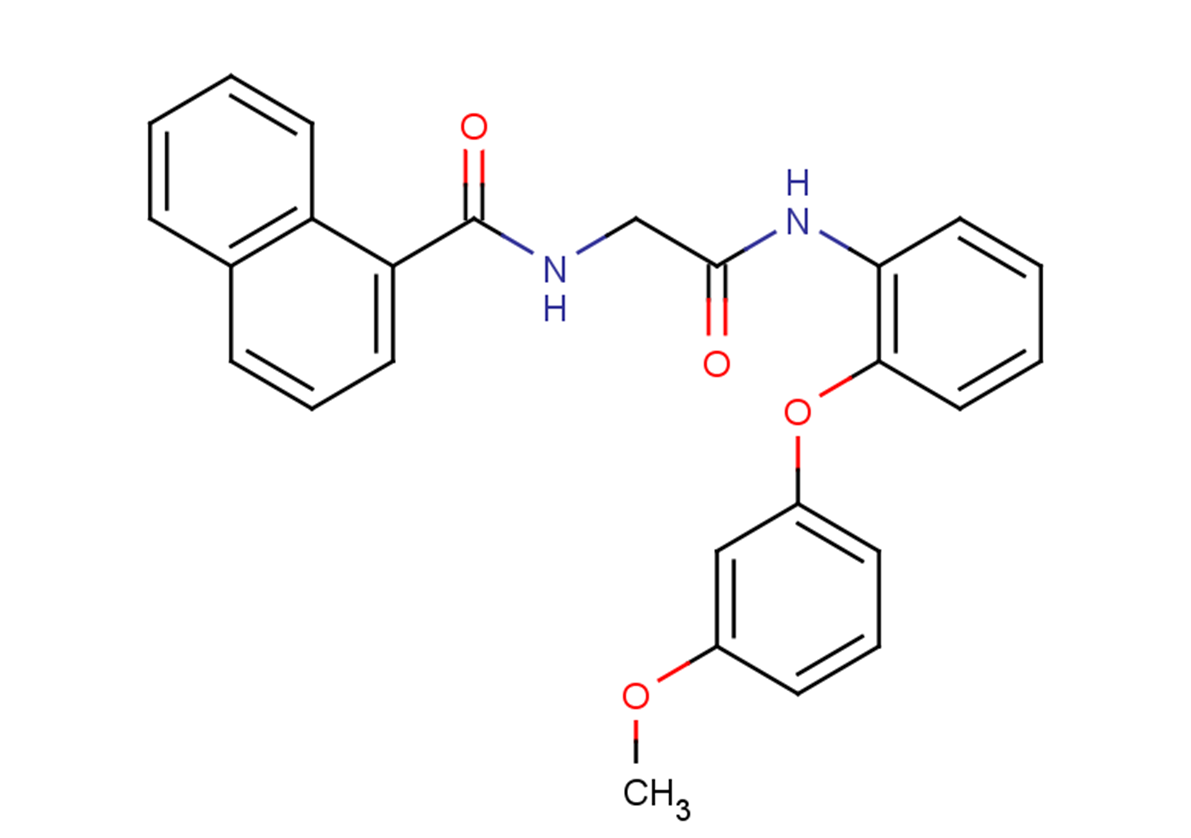AOH1996
| Code | Size | Price |
|---|
| TAR-T77520-1mg | 1mg | £119.00 | |||||||||||||||||||||||||||||||||||||||||||||||||||||||||||||||||||||||||||||||||||||||||||||||||
| Special offer! Add £1 to your order to get a TargetMol CCK-8 Kit. Read more here. | |||||||||||||||||||||||||||||||||||||||||||||||||||||||||||||||||||||||||||||||||||||||||||||||||||
Quantity:
| TAR-T77520-5mg | 5mg | £189.00 | |||||||||||||||||||||||||||||||||||||||||||||||||||||||||||||||||||||||||||||||||||||||||||||||||
| Special offer! Add £1 to your order to get a TargetMol CCK-8 Kit. Read more here. | |||||||||||||||||||||||||||||||||||||||||||||||||||||||||||||||||||||||||||||||||||||||||||||||||||
Quantity:
| TAR-T77520-10mg | 10mg | £254.00 | |||||||||||||||||||||||||||||||||||||||||||||||||||||||||||||||||||||||||||||||||||||||||||||||||
| Special offer! Add £1 to your order to get a TargetMol CCK-8 Kit. Read more here. | |||||||||||||||||||||||||||||||||||||||||||||||||||||||||||||||||||||||||||||||||||||||||||||||||||
Quantity:
| TAR-T77520-25mg | 25mg | £442.00 | |||||||||||||||||||||||||||||||||||||||||||||||||||||||||||||||||||||||||||||||||||||||||||||||||
| Special offer! Add £1 to your order to get a TargetMol CCK-8 Kit. Read more here. | |||||||||||||||||||||||||||||||||||||||||||||||||||||||||||||||||||||||||||||||||||||||||||||||||||
Quantity:
| TAR-T77520-50mg | 50mg | £627.00 | |||||||||||||||||||||||||||||||||||||||||||||||||||||||||||||||||||||||||||||||||||||||||||||||||
| Special offer! Add £1 to your order to get a TargetMol CCK-8 Kit. Read more here. | |||||||||||||||||||||||||||||||||||||||||||||||||||||||||||||||||||||||||||||||||||||||||||||||||||
Quantity:
| TAR-T77520-100mg | 100mg | £862.00 | |||||||||||||||||||||||||||||||||||||||||||||||||||||||||||||||||||||||||||||||||||||||||||||||||
| Special offer! Add £1 to your order to get a TargetMol CCK-8 Kit. Read more here. | |||||||||||||||||||||||||||||||||||||||||||||||||||||||||||||||||||||||||||||||||||||||||||||||||||
Quantity:
| TAR-T77520-500mg | 500mg | £1,653.00 | |||||||||||||||||||||||||||||||||||||||||||||||||||||||||||||||||||||||||||||||||||||||||||||||||
| Special offer! Add £1 to your order to get a TargetMol CCK-8 Kit. Read more here. | |||||||||||||||||||||||||||||||||||||||||||||||||||||||||||||||||||||||||||||||||||||||||||||||||||
Quantity:
Prices exclude any Taxes / VAT
Overview
Regulatory Status: RUO
Shipping:
cool pack
Storage:
-20°C
Images
Documents
Further Information
Bioactivity:
AOH1996 is an orally active ligand for the replicasome component PCNA (proliferating cell nuclear antigen), targeting the transcription-replication conflict (TRC).AOH1996 interferes with the interaction of PCNA with its binding proteins, leading to DNA replication stress and apoptosis.AOH1996 causes proteasome-dependent rpb1 degradation and lethal DNA damage by stabilizing the interaction between PCNA and RNA polymerase II.AOH1996 acts synergistically with DNA damaging agents to inhibit tumor cell growth. AOH1996 inhibits tumor cell growth by stabilizing the interaction between PCNA and RNA polymerase II, leading to proteasome-dependent rpb1 degradation and lethal DNA damage.AOH1996 acts synergistically with DNA damaging agents.
CAS:
2089314-64-5
Molecular Weight:
426.46
Pathway:
Cell Cycle/Checkpoint|Apoptosis|DNA Damage/DNA Repair
Purity:
0.988
SMILES:
O=C(NCC(=O)NC=1C=CC=CC1OC2=CC=CC(OC)=C2)C3=CC=CC=4C=CC=CC43
Target:
DNA/RNA Synthesis|Apoptosis
References
Gu L, et al. Pharmacological targeting of transcription-replication conflict leads to anti-cancer efficacy with minimal side effects in preclinical models. Cancer Research. 2021; 81(13_Supplement): 1269-1269.
Gu L, et al. Small molecule targeting of transcription-replication conflict for selective chemotherapy. Cell Chem Biol. 2023;S2451-9456(23)00221-0.



